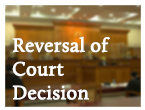- Home /
- Page
The path of a case will vary depending on the type of case and the decisions made by both parties.
Military tribunals were established by military orders issued in March 2021.1 In practice, the court procedures for military tribunals are generally similar to that of ordinary courts and prison courts with the exception of the appeals process. Please see below.
Limited Jurisdiction
In order to be tried in a military tribunal, an accused person must meet both conditions:
(1) Locational jurisdiction: Military tribunals only apply to martial law areas. As of 20 May 2022, martial law has been imposed in six Yangon Region townships (Hlaingthayar, Shwepyitha, Dagon Myothit (South), Dagon Myothit (North), Dagon Myothit (Seikkan) and North Okkalapa) and in Mindat, Chin State.
As of 2 February 2023, martial law has been imposed in
11 townships in Sagaing region (Indaw, Banmauk, Kawlin, Pinlebu, Myaung, Salingyi, Pele, Yin Mar Bin, Khin Oo, Taze Ye-U)2၊
7 townships in Chin state (Tedim, Tomzang, Falam, Matupi, Thantlang, Hakha)
5 townships in Magway region (Gangaw, Tilin, Saw, Pauk, Myaing)3 .
5 townships in Bago region (Htantabin, Okpho, Nattalin, Paungde, Paukkhaung4 .
1 township in Mon state (Ye)
2 townships in Karen state (Kyainseikgyi, Kawkareik)5 .
2 townships in Tanintharyi (Tanintharyi, Palaw)6 .
4 townships in Kayah state (Demoso, Hpruso, Shadaw, Bawlakhe)7 .
As of 22 February 2023, martial law has been imposed in Wetlet, Shwebo, and Ayadaw8
As of now, there are altogether 46 townships across the country that are under martial law. and
(2) Subject Matter Jurisdiction: These tribunals are also limited by subject matter jurisdiction to 23 different types of offences. This including offences under the Penal Code, such as:
high treason (S.122);
offences against the government and military personnel (S.124(a) and S.124(d);
incitement under Section 505;
in addition to a range of other criminal offences, such as murder and robbery.
The offences also relate to charges under laws other than the Penal Code, such as: terrorism, unlawful association, corruption, illicit drugs, and protection of property.
Those subject to both locational and subject matter jurisdiction as mentioned above may still be tried in other courts, such as township or district courts.
Since the martial law orders transfer judical power to either the Commander of the Yangon Command,9 or in Mindat Township (Chin State) to the Commander of North-West Command,10the court procedures followed are at the discretion of the relevant Commanders, therefore there is no clear legal procedure to follow with a few exceptions. See below.








